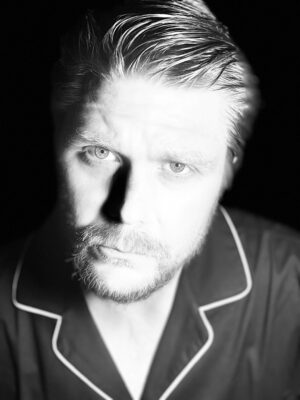This week for working in the arts we spoke to Nick Walter, CEO of Vortic Art. Vortic is a powerful virtual reality and digital exhibition ecosystem for galleries, institutions and collectors to quickly and sustainably curate, share, and revisit exceptional exhibitions with any viewer, anywhere in the world.
We get a lot of candidates saying they’d like to work in an art tech start-up. What advice would you give to someone wanting to work in this area of the art industry?
Go for it! It’s an extremely exciting space to be in with lots of innovative companies working in the sector and it feels like we are approaching a growth period for the industry where there will be more widespread digital adoption and new innovation. Galleries and Museums are looking for new ways to engage with audiences in more sustainable and meaningful ways and technology is a great option. There’s some amazing Art Tech companies out there; we’ve seen newer companies like SuperBlue providing unique sensory experiences that combine physical and digital, Acute Art continuing to work with artists to create interesting AR and VR experiences that are pushing both mediums forward, and more established business like ArtLogic attracting external investment to fuel their growth and expand their offering. And I haven’t mentioned what we are doing here at Vortic; we have created a sustainable digital exhibition ecosystem for the art world, specifically designed for galleries, institutions and collectors. I think once you have identified a business you are interested in, it is time to really start looking at what you can find out about the day-to-day reality at that company and the culture. Read their website, research the founders, and really consider what you want from your working environment and how this can help you grow as a professional and a person. I think it is important that you find a company and product that you believe in as working for a start up requires you to really give yourself to the project and it’s not a standard 9-5. I’d consider how well funded the business is either through established revenues streams, investment or both and how they plan to grow over the next 3-5 years. These would be some of the main areas I would be preparing questions to ask during the interview process.
What skills/ attributes/ values do you believe are critical for working in a start-up?
Resilience is key as start up life isn’t easy or for the faint hearted. You will be stepping into a newer business that is still developing, learning, and evolving its practices and processes and this can be unsettling for people who are used to working in more settled environments. You spend a lot of time analysing everything you do and compiling data reports that can help you optimise what you are doing and it is a continuous process of learning and adapting. You need resilience to deal successfully with the highs and lows involved in an uncertain process. Self-belief is also key and ties into resilience. The process of establishing a brand, product, or service can be frustrating, it is highly unlikely that you get this right the first time, but you must believe in yourself and your ability to deliver something that will succeed. Successes don’t always come easily and you must be able to deal with disappointment, receive feedback positively, and keep believing that if you continue to work hard and smart, the success will come. A proactive way of working is really important as you need to be a self-starter and be able to keep moving forwards when you might not be getting constant direction or there may be lulls of activity for the company. It is important you keep
doing important work and that you also know where you should be putting your efforts.
Finally, I would say adaptability is really important. In younger businesses that change constantly you need to be able to adapt. Whether that is an opportunity that has come from nowhere at the 11th hour that you need to be able to capitalise on or whether something isn’t working and you need to change your approach, you have to be able to roll with the punches and make an impact. There can be a lot of uncertainty in early stage businesses, and you have to adapt to this way of working and understand that sometimes the future is unpredictable and that is part of the challenge.
What are the most positive aspects of working in a start-up?
For myself, it is the ability to create something amazing – a product, a company, a culture, a team, a platform for people to be the best they can be. It’s also the challenge of trying to drive adoption of incredibly advanced cutting-edge technology with an audience that traditionally do not adopt tech easily. More generally, having worked in more corporate environments as well as start-ups, it really comes down to the fact your work will make a real difference – a start up’s success is based on the ability of its team to do something daring, innovative, and execute a plan to a high-level. Everyone has to play their part and you feel like
you are on the front line and that you won’t just be making up the numbers. You will be given more opportunities to gain a broader experience and be involved in areas of a business that you traditionally wouldn’t in a more established business.
What has been your journey to working where are you now?
My journey started in finance which was an industry I didn’t hugely enjoy but it gave me some great experience. I was always more creative, as well as business minded, and after being caught up in a terrorist attack in Africa in my mid-twenties, I reassessed my career choices and launched my first business at the age of 27. Since then I have worked across multiple start-ups, tech companies, blue-chips, and projects during the early boom years in technology as Old Street and Shoreditch became a hub for London tech firms. I was lucky enough to be part of the tech industry as smartphones, wearable technology, and the internet of things took off. My experiences lead me to teaming up with Oliver Miro to launch Vortic in 2017 after we saw the potential that VR could have in the art world. I had been experimenting with VR and felt it was exciting to be at the early stages of a reasonably new technology. .
Finally, what career advice would you give to your younger self?
Don’t spend time doing things that you don’t enjoy..
Be strategic about how you build your career..
Dream big, but start small..
Culture is key!
I’ve had to sacrifice a lot along the way to get to where I find myself today – relationships, family time, and financial stability have been some of things that have suffered by becoming an entrepreneur at a young age. Sometimes it seems easier to stay in a 9-5 job that is steady and build a career that way, but I always hated feeling like one of the numbers in big financial companies and I didn’t always agree with the ethics and culture. I appreciate the value of working in more corporate businesses; they can help you develop important skills with experience and training, make connections that will be important in future, and build your CV. As a teenager, I always wanted to launch businesses that would conceptually ‘change the world’ but learning how to build businesses from the ground up is a process and you never stop learning. Culture is important, but this wasn’t a recognised term during my financial career. I felt and saw the effects of negative culture first hand and how a bad culture can be detrimental to your wellbeing. Your health, both physical and mental, has to come first and if your workplace cannot support this then it will be difficult to be balanced and happy. There can be a lot of satisfaction in building something small but impactful and efficient – I often feel there is a romanticism about technology start-ups and the thought of ‘dreaming big’. Dreaming big is great, but it takes a long time to go big and it all starts with creating solid foundations and executing small and this is something that I wish I’d realised sooner.
Thank you to Nick for taking the time to talk to us. Find out more about Vortic’s work here.
Notes from DRAW · 24.01.2023





